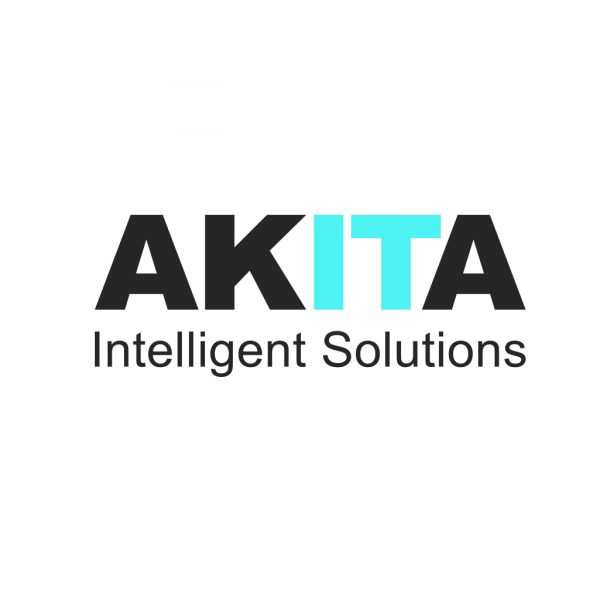Customer relationship management (CRM) is a critical component of most mature business operations. So its important to get the most from it.
CRM consultancy offers valuable expertise and guidance to businesses seeking to optimise their CRM strategies and systems. Below, we explore the benefits of CRM consultancy and how it can help businesses achieve customer-centric goals.
What is CRM consultancy and what does it involve?
CRM consultancy involves partnering with experienced digital transformation professionals (such as Akita) who specialise in CRM strategies and systems. Consultants work closely with businesses to analyse their current processes, identify areas for improvement, and develop effective CRM strategies.
Consultancy can provide valuable insights around working practices, recommending how suitable CRM solutions can improve processes. CRM consultants can also oversee CRM system implementation, as well as ongoing support.
What are the benefits of CRM consultancy for business?
There are many benefits of CRM consultancy for businesses, with five of the most prominent covered below:
1. Enhanced customer understanding: Expert guidance can help businesses gain deep insights into their customers' behaviours, preferences, and needs. By leveraging CRM solutions, businesses can track customer interactions, analyse data, and create personalised experiences, increasing customer satisfaction and loyalty.
2. Streamlined processes: Consultancy can assess existing business processes and identify inefficiencies and bottlenecks. They streamline workflows, automate repetitive tasks, and integrate CRM systems with other business applications resulting in improved operational efficiency and productivity.
3. Improved sales and marketing effectiveness: Consultancy helps businesses optimise their sales and marketing efforts. Consultants assist in implementing lead management systems, designing effective marketing campaigns, and enabling accurate sales forecasting, leading to increased revenue generation and better customer targeting.
4. Effective data management: Working with experts can ensure businesses have a robust data management strategy in place. They assist in data cleansing, standardisation, and segmentation, enabling businesses to make data-driven decisions and gain valuable insights for strategic planning.
5. Better customer service: CRM consultancy can also deliver improved customer service processes and systems. Consultants help implement customer support tools, establish communication channels, and enable efficient ticket management, resulting in enhanced customer satisfaction and faster issue resolution.
Can CRM consultancy assist in integrating CRM technology with other business systems?
One of the benefits of CRM consultancy is the specialised assistance it provides in integrating CRM technology with other critical business systems. Experienced consultants are exceptionally well-positioned to assess your existing platforms and pinpoint opportunities for meaningful integration. This aims to forge a unified and seamless operational environment across the business landscape.
By merging your CRM system with other essential tools such as marketing automation platforms, ERP systems, websites, and e-commerce platforms, businesses can streamline data flow and eradicate redundant entries. This comprehensive integration allows for a holistic view of customer interactions across multiple touchpoints, adding significant value to the customer relationship management strategy

How do CRM consultants address change management and user adoption challenges?
Change management and user adoption are critical factors in the successful implementation of CRM systems. CRM consultants address these challenges by:
1. Smart approach to change management plan: Consultants create a structured approach to manage the transition, including communication plans, training programmes, and stakeholder engagement strategies. They ensure that employees understand the benefits of CRM and actively participate in the implementation process.
2. Providing training and support: Training is key to CRM adoption. Consultants offer training sessions and workshops to familiarise employees with the new CRM system. They provide ongoing support, address user queries, and offer guidance to ensure a smooth transition and adoption.
3. Promoting a culture of collaboration: An engaging consultant will know how to encourage collaboration between different teams and departments. By fostering cross-functional cooperation and emphasising the benefits of CRM, consultants help overcome resistance to change and promote user adoption.
What are the common challenges faced during CRM consultancy projects?
CRM consultancy projects can encounter various challenges. One of these challenges is ensuring data quality and consistency. Inaccurate or incomplete data can hinder the effectiveness of CRM systems. To address this, consultants work closely with businesses to identify and resolve data quality issues. They implement data validation processes and establish data governance policies to ensure the accuracy and consistency of data.
Another common challenge is the lack of user engagement. Sometimes employees perceive CRM as an additional burden, hindering user adoption. Consultants address this challenge by emphasising the benefits of CRM to the employees. They provide comprehensive training sessions to familiarise users with the system and actively involve them in the decision-making process, making them feel more engaged and invested in the CRM implementation.
Complex customisation requirements are often encountered in CRM consultancy projects. Businesses may have unique needs that require tailored solutions. Consultants thoroughly analyse the business processes and select the appropriate applications or modules. They configure the system to align with the specific requirements of the business, ensuring that the CRM solution meets their unique needs.
Integrating CRM systems with other business systems can be a technically complex task. CRM consultancy brings their expertise to design and implement seamless integrations between CRM and other systems. This ensures that data flows smoothly between systems, eliminating duplicate entries and providing a unified view of customer interactions across various touchpoints.
The Value Of CRM Consultancy
Overall, the benefits of CRM consultancy are manifold and vital for businesses aiming to fully harness customer relationship management. Consultants are adept at tackling the inherent challenges of a CRM project. With their specialised knowledge and industry experience, they offer invaluable insights and best practices, ensuring businesses can surmount obstacles and successfully deploy effective CRM strategies and systems.
By tapping into the expertise of CRM consultants, businesses can not only streamline their processes but also fine-tune their CRM strategies and systems for sustainable growth. This invariably results in heightened customer satisfaction, improved customer retention rates, and a competitive edge in the market. Over time, investing in CRM consultancy can lead to a higher ROI and a more robust customer-centric business model.
Discover more about the benefits of CRM consultancy and how Akita can assist your organisation:





